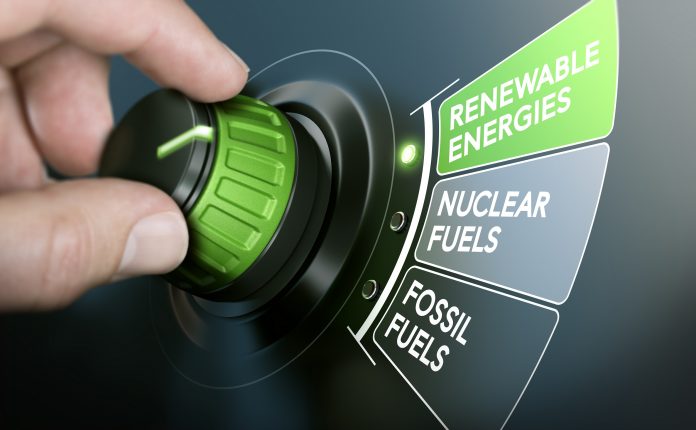
Turning heads with surprising news, the Pew Research Center recently released a poll showing that almost two-thirds of Americans prefer combating climate change without sacrificing the fossil fuel industry. Approximately 64% of the U.S. population prefer a balanced commingling of energy sources as the world moves into the future. This includes the pairing of oil, natural gas and coal with renewable energy sources. Those wishing a full-on extinction of fossil fuels comprise approximately 33% of Americans.
“Even as Americans identify a number of pressing national problems, majorities see an array of actors, from government to business, as doing too little to reduce the effects of climate change and are broadly supportive of a range of policy approaches that would help address climate change, including moving toward renewable energy sources, developing infrastructure for electric vehicles, and increasing taxes and restrictions on carbon emissions,” the Pew Research Center reported in its poll.
Generational Approaches
While members of the younger generations typically populate the steps of the climate debate, millennials and Generation Z adults gain recognition in this latest poll indicating increased involvement regarding climate change issues. With increased conversations, these groups are getting more involved through volunteering and also through increased attendance at protests and rallies.
Although voting appears to be monopolized by older adults, Generation Z and millennials lean more towards donations and contacting elected politicians. The baby boomers did not display the same passion.
The Pew survey found that the majority of Generation Z expressed anxiety regarding climate change in the future when being exposed to online content. A smaller group of millennials indicated similar sentiments. Drawing comparisons, members of Generation X and the baby boomers linger at the other end of the spectrum, with less than half feeling concerned over online climate change data.
This concern or anxiety finds prevalence with online users. While large numbers of social media participants express anger about the lack of attention given to solving climate change issues, increased shares are motivated to learn more in order to reduce the effects of climate change.
Portraying Party Beliefs
The survey revealed an interesting segment of information. While an increased number of younger adults identify with the Democratic Party, generational differences regarding climate change are not exclusive to this one particular party. The study indicates that generational differences in climate change attitudes vary among Republicans. Nearly 50% of Generation Z and millennial Republicans feel climate change needs to be a priority of the current day as opposed to the distant future.
Differences among generational attitudes are not as diverse within the Democratic Party as the majority wish instant climate action. Younger Democrats, however, are more likely to discuss and take action on climate change as opposed to older party contributors. With that being said, Generation Z and millennial Democrats more openly embrace doing away with fossil fuels, while Democratic Generation X and baby boomers would be less likely.
Weighing in on the Infrastructure Bill
Upon instantly taking control of the White House, the Biden administration initiated its implementation of climate change regulations targeting the fossil fuel industry. Continuing its path to a new renewable economy, Biden is pushing a new infrastructure bill with various bullet points and targets.
Taking its future into consideration, the Pew Report addressed three points of the bill. Over 74% of Americans support a plan mandating power companies to depend more heavily on renewable energy sources to reduce the carbon footprint. 62% of the population supports federal spending to construct a network of charging stations for the electric car industry. Nearly the same number of citizens favor a corporate tax increase to fund road improvements and construction of energy-efficient buildings.
When considering the infrastructure plan’s economic benefit, approximately half of American adults support the rebuilding of the national infrastructure based on a blueprint of reducing climate change. While 18% of the population speculate this will have no economic impact, fewer than 30% feel it could be detrimental.
With the plan being largely supported by Democrats alone, it is understandable that 78% of their party affiliates predict a positive impact on the U.S. economy. Making up 59% of the party, the majority of Republicans expect economic failure regarding the infrastructure plan’s impact.
Additional Poll Findings
- Approximately 60% of the U.S. population stress the importance of adding jobs and increasing economic growth regarding propositions to cull climate change effects.
- Of the American population focusing on climate change, Black adults make up 68% of the group, while 55% is comprised of Hispanic adults. Both contributors display great concern for the proposals to assist communities of low-income families.
Pew History
Based in Washington D.C, the Pew Research Center is an American think tank dedicated to providing diverse information targeting social issues, demographic trends and opinions of the public. Concentrating on a domestic audience, the organization conducts polling and research of the demographic’s opinion.
Managing as a subsidiary of the Pew Charitable Trusts, the Pew Research Center declines to take stances on political policy and only reports on the data it collects through a variety of methods, including random telephone calling of both cellular and landline phone numbers.














